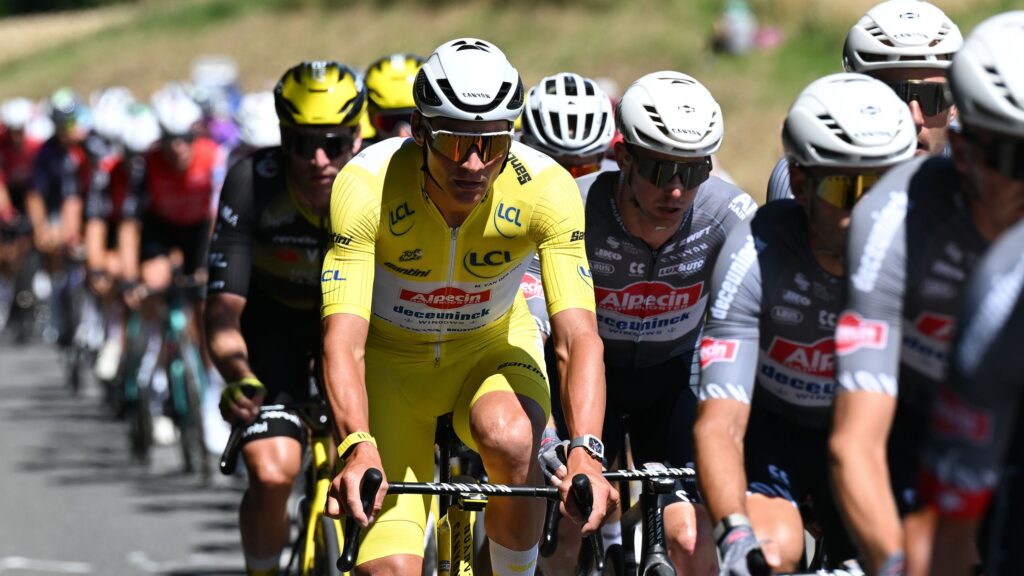Tadej Pogacar’s remarkable cycling prowess was put to the test in the latest stage of the race, marking a pivotal moment in the competition that has left fans and analysts alike buzzing with anticipation. Before the onset of yesterday’s grueling stage, Pogacar had been basking in the glory of leading not just one, but all three prestigious classifications: the yellow jersey for overall leadership, the green jersey for the points classification, and the polka dot jersey, awarded to the best climber. This triple reign showcased his multifaceted talents and established him as a formidable force in the cycling circuit.
However, the harsh realities of competitive cycling became evident during what many are calling the most challenging day of the race thus far. On this particular stage, Pogacar was forced to concede not only the yellow jersey to Dutch cyclist Mathieu Van der Poel, who edged him out by a slender margin of just one second, but also surrendered the polka dot jersey to his own teammate, Tim Wellens. Additionally, Jonathan Milan from Italy triumphed in securing the green jersey after an impressive performance in the intermediate sprint, coupled with a flurry of action in the breakaway group. The day may have been a setback in terms of podium appearances and jersey ownership for Pogacar, but it was ironically characterized as a successful outing for him personally.
This unexpected twist in the standings raises intriguing questions about the dynamics within the team and how individual success can sometimes overshadow the collective ambitions in the sport. While Pogacar did not need to step onto the podium, a scenario that has become somewhat uncommon for the two-time Tour de France champion, this absence may have alleviated some pressure he typically shoulders. Emblematic of the high stakes in professional cycling, his experience serves as a reminder that the unpredictability of the sport is what keeps fans on the edge of their seats.
As the stages of this intense race unfurl, it’s essential to consider the implications for Pogacar and his strategy moving forward. By losing three jerseys in a single day, one might speculate about the mental toll this could take on the young Slovenian rider. Yet, Pogacar, known for his resilience and aptitude, may leverage this experience to fuel his determination for future stages. A strong team dynamic and support from teammates, like Wellens, could play a crucial role in reclaiming lost ground as they navigate the remaining challenges of the course.
The unfolding scenario not only adds drama to Pogacar’s journey but also highlights the competitive spirit that defines the sport. Each cyclist in the peloton is striving not just for personal victory but also aiming to elevate their teams and establish their legacies. The interplay of strategy, endurance, and split-second decisions can make or break an athlete’s standing on any given day, reinforcing the notion that in cycling, every stage can be a game-changer.
In conclusion, Tadej Pogacar’s experience during this stage of the race encapsulates the highs and lows that characterize professional cycling. As he steps into the next stages without his familiar jerseys, the cycling world will be watching closely to witness how he adapts and what strategies he employs to reclaim his position at the forefront of the competition. There is a narrative unfolding that extends beyond individual accolades — one that speaks to the tenacity of the human spirit and the relentless pursuit of excellence in an ever-evolving landscape of athletic prowess. The stage is set, and the journey promises to be as captivating as it is challenging.












